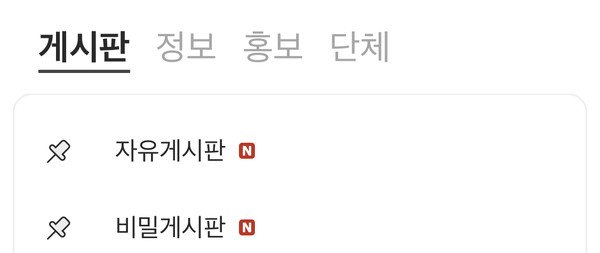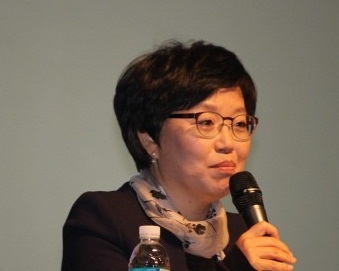Traditionally, based on Confucianism, in the Korean culture, men symbolize the sky and women symbolize the land, leading to the belief that women should serve men. Nonetheless, after the Japanese colonial period, as women became highly educated and gained prominence in society, Korea has headed toward a gender-equal society.
However, this process was not smooth. Gender conflict has lasted longer and is fiercer than any other conflict. This can be interpreted using the anomie theory, which argues that a slow-changing system compared to a rapidly-changing society causes social conflict. Particularly, according to many surveys, gender conflicts among people in their 20s are intensifying. Men in their 20s claim that current feminism builds a framework wherein women are minorities and men are privileged. Despite fulfilling their military duties, they feel like they have been put on the back burner in terms of employment and government policies.

The most intense gender conflict happens among college students within Everytime, the online university community application. Everytime provides a forum for college students to share information easily. Students register after verifying their identity at the time of signing up, but after logging in, they leave notes anonymously on the bulletin board. Thus, free and secret bulletin boards reveal all kinds of conflicts, such as political issues, sexual minority conflicts, and gender issues. Gender conflict has especially been a long-standing issue, and students outrightly pour their thoughts owing to the power of anonymity. The conflict in everyday life is even more problematic because the application is used only by students from the same college. Schoolmates who take classes together or see each other on campus target each other online with hate speeches, forming wrong perceptions of each other.
Thus, The UOS Times interviewed Professor Kim Min-jung to accurately diagnose the state of gender division and to obtain clues about gender conflicts among college students. Prof. Kim mainly teaches European politics and women’s politics in the Department of International Relations, is the director of the Korea Women’s Political Culture Institute, and a member of the National Assembly Advisory Committee on Gender Equality.

1. What got you particularly interested in gender issues?
I earned my doctorate in 1993 and began my job search. At that time, Korean social science colleges did not hire female professors. When I submitted the papers, they did not even put my name on the list since I was a woman. In 1997, when the Korean Political Science Association (KPSA) established the Women’s Politics Research Committee, I joined it to study politics from a gender perspective and became fascinated with gender issues. Gender research made it possible to accurately explain the reality and come up with ways to solve the problems that I suffered.
2. The word “feminism” itself is often used negatively. What do you think is the main reason for this?
Feminism has several branches. However, it is basically an ideology that focuses on improving the social status of women. It criticizes a male-dominated society. By misunderstanding it as a criticism of men, people who are against it bring up unnecessary disputes. In fact, feminism believes that the oppression of one sex simultaneously causes the oppression of the other sex. Accordingly, feminism recognizes that men are also oppressed by this social structure. Feminism does not consider men as enemies.
3. Did you notice that the gender conflict is serious among college students?
I think gender conflicts among college students also start with a misunderstanding of feminism, as I mentioned. In particular, in the 2000s, a lot of pro-feminine legislation were passed, and men tended to perceive this as a violation of their vested rights. Moreover, men in their 20s have a hard time finding jobs as the paradigm of today’s society has shifted. Therefore, they tend to make decent women scapegoats for social dissatisfaction. Hence, as employment has become difficult, gender conflicts seem to be getting more serious.
4. In addition to the employment you mentioned, gender conflict among college students is also about the draft system. What do you think about the draft system?
I think it is time for Korean society to think about the draft system from a different perspective. Realistically, if it is difficult to get rid of the draft system as an element of the Cold War that divided Korea. It is necessary to discuss the obligation of defense for both men and women. Of course, this requires the consent of women in their 20s. There are quite a few countries in which both men and women have defense obligations. Most of these countries also accept conscientious objections, which means that they can choose from various ways to fulfill their defense obligations. In Korean society, a more extensive discussion is required.
5. Did you recognize that your students’ perceptions about gender have changed over time as you continue to teach gender-related issues?
In class discussions, students do not express their opinions honestly. Hence, it is not easy to find changes in their perceptions by only observing them in class. However, the fact that a significant number of male students attend the lectures is a very positive indication. Nonetheless, there is a considerable gap in the perception of gender issues between girls and boys.
6. You became a member of the Gender Equal Investigation Advisory Committee of the National Assembly. What exactly does the committee do?
When Kim Sang-hee was appointed as the first female vice-chairman of the National Assembly, the committee was established. The committee focuses on two areas. One is to propose establishing a gender-equal culture within the legislative process and within the assembly as a workplace. The other is to observe whether the outcome of the legislative of the National Assembly is gender-equal.
7. What are the difficulties and prerequisites of framing policies on gender equality?
Gender equality policy should consider two dimensions. One is to eliminate the element of gender inequality in fields where women still feel segregated. For example, women still bear the brunt of marriage, pregnancy, and childbirth. Balancing family and work is difficult. While eliminating inequality, a careful approach is needed so that men do not perceive this as reverse discrimination.
Another dimension is to evaluate the impact of policy in all areas from a gender perspective, even where it seems not necessarily related to women. Evaluating the impact of policies from this perspective is difficult because we are not familiar with it. However, this is the most crucial aspect of gender equality.
8. What do you suggest to Korean college students in terms of moving toward a gender-equal society?
Society is a place where men and women live together. There can be no women without men and vice versa. If one sex is unhappy, the other sex will also be unhappy. Keeping this in mind, we must cooperate and understand the strengths and weaknesses of the other gender. During student periods, “Students’ interests have not been molded yet, and therefore, they still have a chance to understand each other and cooperate.” I hope that students do not neglect the need to understand each other and cooperate in school.
As the professor mentioned in the interview, the most important aspect of solving gender conflict is the attitude of trying to understand each other’s position. This reporter took the professor’s lectures on gender last semester, which enabled me to look at the gender conflict with an unbiased view. However, there is still a lack of effort in our society to set the stage for such discussions, and it is not easy to devote time toward thinking about this problem thoroughly. College students are especially prone to receive biased information from the media. Thus, it is important to keep in mind that such information is only partial. It is important to trust the information only after critically reviewing it without being swayed by it.
All conflicts, including gender conflicts, stem from the fact that we cannot fully understand the other’s perspective. However, since every individual has created our society, accepting differences and developing a mature attitude is needed.

